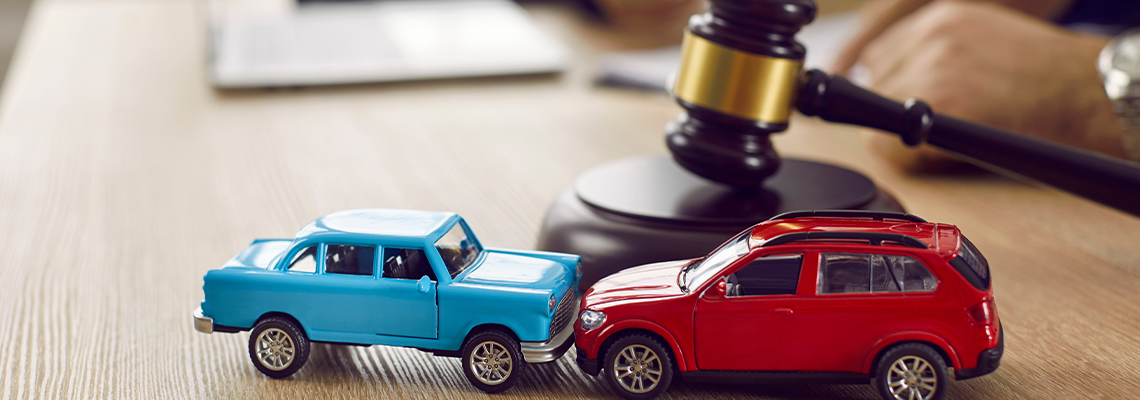
Evidence After an Accident
Accidents can happen in the blink of an eye, leaving individuals injured and confused about the next steps to take. One of the most critical aspects of resolving any accident-related claims or legal actions is gathering evidence promptly and effectively.
Gathering evidence is essential for several reasons. First and foremost, it helps establish the facts of the case, showing what happened during the accident and who may be at fault. This information can significantly impact the outcome of insurance claims or any legal proceedings that may arise. Additionally, high-quality evidence can strengthen your position when negotiating settlements, often leading to better compensation for you as the victim.
Types of Evidence to Collect
Photographs and Videos
One of the most compelling forms of evidence you can collect after an accident is photographs and videos. Use your mobile device to capture images of:
The accident scene from multiple angles, showcasing relevant conditions like road signs, traffic signals, and light conditions.
The vehicles involved, including any visible damage.
Any visible injuries to yourself or others.
Debris or skid marks on the road.
These visual records can clarify the scene of the accident and may serve as useful components of your case down the line.
Witness Statements
Eyewitness accounts can provide invaluable insights into what occurred during the accident. Collect contact details from anyone who witnessed the incident, and if possible, ask them to provide a statement about what they saw. Be sure to gather information such as:
Their full name and contact information.
A brief summary of their account of the event.
Any relevant credentials that may lend credibility to their testimony, such as being a driving instructor or local law enforcement officer.
Witness statements can corroborate your version of events and help reinforce your claims regarding negligence or fault.
Police Reports
If law enforcement responds to the scene, they usually file an official accident report. This report contains crucial information such as:
The names and contact details of everyone involved.
Details about the sequence of events leading up to the accident.
Any cited traffic violations or other relevant legal findings.
Request a copy of the report as soon as it becomes available. It can be instrumental in establishing circumstances surrounding the accident and facilitates the claims process.
Medical Records
Ideally, you should document any injuries sustained during the accident and seek medical treatment as soon as possible. Prompt treatment not only aids in your recovery but also helps create a medical record that links your injuries to the accident. Make sure to keep copies of:
Medical bills.
Treatment records, including hospital visits, therapy sessions, and follow-up appointments.
Diagnosis notes from healthcare professionals.
These documents can significantly bolster your claims when attributing fault and demonstrating the financial impact of the accident on your life.
Insurance Information
Collecting the insurance information of all parties involved in the accident is crucial. This includes:
The names of the insurance companies.
Policy numbers of all vehicles involved.
Contact information for the insurance representatives.
This information will be necessary for filing claims and pursuing compensation for injuries and damages to your property.
Expert Opinions
In some accidents, it may be beneficial to enlist the help of experts who can provide insights into the circumstances surrounding the incident. This can include accident reconstruction specialists, medical professionals, or engineers who can assess vehicle conditions or roadway factors. Their analysis may be valuable in establishing the extent of fault or the likelihood of specific causes contributing to the accident.
Documenting Evidence Effectively
Proper documentation can make a significant difference in building a solid case. Here are some tips for effective documentation:
Create a Timeline: After the accident, write down your recollections of the events leading up to and during the incident. Include details like the date, time, location, weather conditions, and any mitigating circumstances that could have influenced the accident.
Organize Documentation: Keep all documentation related to the accident in one folder or digital space. This should include photographs, medical records, witness statements, and any correspondence with insurance companies or legal representatives.
Stay Updated: Evidence collection doesn't stop after the immediate aftermath of the accident. Sometimes, additional evidence or witness accounts come to light. Regularly revisit your collected evidence and follow up with witnesses as needed.
Understanding your rights and obligations in relation to evidence after an accident is essential. In many cases, insurance companies may want to settle quickly, relying on your willingness to accept a low-ball offer. Having a well-documented collection of evidence can counter this approach, ensuring you receive fair compensation for your injuries and damages.
In scenarios where legal action becomes necessary, having strong evidence will be vital for your personal injury attorney to build a solid case. Oregon law requires that the burden of proof lies with the party seeking to claim damages, which makes proper documentation even more critical.
Contact a Personal Injury Attorney
If you find yourself overwhelmed by the process of gathering evidence or navigating the complexities associated with insurance claims, consulting a personal injury attorney can provide invaluable support. An experienced attorney can help:
Guide you on what evidence is most beneficial to your case.
Aid in contacting experts.
Represent you in negotiations and ensure your rights are protected.
If you've been involved in an accident and need assistance gathering evidence or pursuing compensation, reach out to a qualified legal professional to discuss your case.
